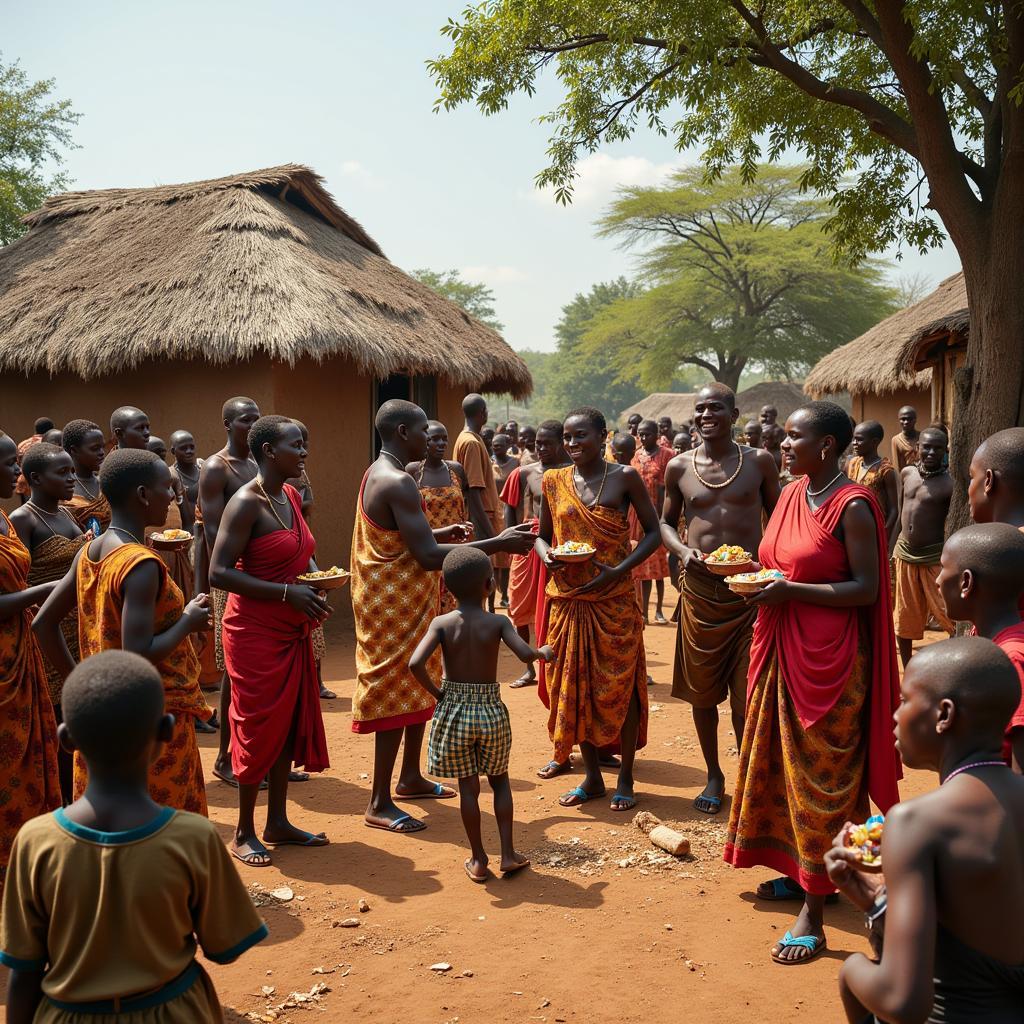Exploring African Ethics: A Journey into Values and Moral Systems
African Ethics is a rich tapestry woven from diverse cultural threads, reflecting the continent’s vast array of traditions, beliefs, and philosophies. This exploration delves into the core principles that shape moral decision-making and social interactions across Africa, revealing a complex and fascinating landscape of values. After the opening, we will discuss the core concepts of African ethics.
Ubuntu: The Heart of African Ethics
A key concept in understanding African ethics is Ubuntu, a Nguni Bantu term often translated as “humanity towards others” or “I am because we are.” Ubuntu emphasizes interconnectedness, community, and the shared responsibility for upholding moral values. It suggests that individual well-being is inextricably linked to the well-being of the community. Acts of kindness, respect, and compassion are seen as essential for maintaining social harmony. Learn more about how Ubuntu impacts African ethics in this [african ethics and ubuntu](https://omenkamag.com/african ethics-and-ubuntu/).
 Ubuntu Community Celebration
Ubuntu Community Celebration
The Role of Elders in Moral Guidance
In many African societies, elders play a crucial role in transmitting ethical principles and ensuring their adherence within the community. Their wisdom, derived from years of experience and deep understanding of cultural norms, provides guidance on navigating ethical dilemmas and resolving conflicts. This oral tradition of passing down knowledge reinforces the importance of respecting ancestors and upholding the values they established.
Beyond Ubuntu: Exploring Diverse Ethical Frameworks
While Ubuntu holds a prominent place in discussions of African ethics, it’s important to acknowledge the diversity of ethical frameworks across the continent. Different ethnic groups and regions have developed unique perspectives on morality, shaped by their specific histories, social structures, and environmental contexts. These diverse ethical systems often share common themes, such as the importance of community, respect for elders, and a strong connection to the natural world. To dive deeper into various perspectives, explore further readings on [african ethics and morality](https://omenkamag.com/african ethics-and-morality/).
The Influence of Religion and Spirituality
Religion and spirituality also play a significant role in shaping African ethical values. Indigenous belief systems often emphasize the interconnectedness of all living things and the importance of maintaining balance and harmony within the natural world. The arrival of Islam and Christianity introduced new ethical frameworks, which often blended with existing traditions to create unique syncretic systems. You can find further resources on this topic in [african ethics and morality pdf](https://omenkamag.com/african ethics-and-morality-pdf/).
African Ethics in the Modern World
How do traditional African ethical principles navigate the complexities of the modern world? Issues such as globalization, rapid technological advancements, and increasing urbanization present new ethical challenges. Traditional values are often reinterpreted and adapted to address these contemporary concerns, demonstrating the resilience and adaptability of African ethical systems.
Balancing Individualism and Communalism
One of the key challenges facing African ethics today is balancing the emphasis on communal values with the growing influence of individualism. While traditional African societies prioritize the needs of the community, modern contexts often encourage individual achievement and self-reliance. Navigating this tension requires finding ways to reconcile these seemingly opposing forces, ensuring that individual aspirations do not undermine the social fabric of the community. For an engaging perspective on this topic, check out african ethics an anthology of comparative and applied ethics.
In conclusion, African ethics offers a rich and complex perspective on moral values and human behavior, emphasizing community, interconnectedness, and respect for elders. Understanding these principles is essential for fostering cross-cultural dialogue and building a more just and equitable world. As we navigate the challenges of the 21st century, the wisdom embedded within African ethical traditions can provide valuable insights and guidance. You can explore some challenging scenarios in african ethics exam.
FAQ
- What is Ubuntu?
- How do elders contribute to ethical education in African communities?
- What are some of the key challenges facing African ethics in the modern world?
- How does religion influence African ethical values?
- What is the role of community in African ethical frameworks?
- How does African ethics address issues of conflict resolution?
- How can we learn from African ethics to promote global ethical understanding?
Need more assistance? Contact us at +255768904061, [email protected], or visit us at Mbarali DC Mawindi, Kangaga, Tanzania. We have a 24/7 customer service team.